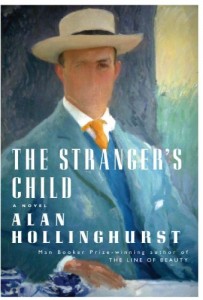Yes, Harper’s, while edited by a woman, will never win any VIDA-based gender-balance-on-the-contents-page awards. Really, probably never. It’s maybe worse than the New Yorker in this regard. Of 23 credited names in the October 2012 issue, 3 are women’s. Even the Cox-Rathvons, 50 percent female, seem to have been absent from the Puzzle page.
But still it’s a really great magazine, with great and smart critics, two of whom I want to quote from here. First up is The Cupboard’s own Joshua Cohen, from his review of Jed Perl’s Magicians and Charlatans. Actually, it’s just Perl himself, a paragraph Cohen opts to quote in full, in a discussion on the ever-faddish union of high and low in art:
There are, however, essential differences between garbage then and garbage now. They are distinctions that would have been perfectly clear to Sontag and Kael, who had always taken for granted the significance of traditional artistic values, and who both, late in life, pointed out that they had never meant for camp or trash to trump old-fashioned quality. Pop Art and “Bad” Painting, in any event, were self-consciously ironic; they depended on the existence of a standard that was being mocked or from which one was registering a dissent. Irony, even in the whatever-the-market-will-bear forms that it often assumed in the 1980s and 1990s, was generally accompanied by at least the afterglow of a moral viewpoint. The artists were mocking something. They had a target. This is what has now changed. Laissez-faire aesthetics makes a mockery of nothing. Even irony is too much of an idea.
Next up, with two great grafs, is cranky old Bill Gass (which I have absolutely no license calling him), from his review of the new collection of Orwell’s letters:
The procedure Orwell adopts for his writing goes like this: find a social class (but the hunt should be among workmen, farmers, or outcasts, not the white-collar), insert yourself into that class, lead your daily life the way they do, dissolve what you learn into notes, and serve the result to the public. Your claim upon their attention will be this: The resulting text will be more detailed, correct, and informative than the competition’s—traveler’s reminiscences, tourist guides, memoirs, and other autobiographical equipment—because you are interested only in the “unfortunate,” because you want to reform society, not to enjoy the countryside or celebrate your good old life among the cannibals. Do you wish your readers to shed a tear over the impoverished condition of the exploited, or over your description of their plight? If you were really going to tell the truth about what you found along the way you would first have had to grow up among the crop you wished to harvest, which clearly you cannot accomplish. You would have to unknow things—how far in meters it is to the next town, Plato’s Symposium, the average life span of a lobsterman, Lawrence of Arabia, the cost of a pair of shoes in the desert. Oh, that last your subject may also know—perhaps you share something after all—but will you know how it feels if one day he has a pair that fits?
This, in a mostly adulatory review. Here’s its end:
In addition to social connections of a pragmatic or idealistic kind, there is a third way of understanding the relations of individuals to the state. It was first demonstrated, as far as I can calculate, by Socrates, when he refused to avoid his death penalty and escape Athens. We need to see society as an extension of ourselves, an invisible part of our anatomy that assists us every day without dominating us and that, like our own arms and legs, we tend when injured, and whose welfare we consider at all times. The relation resembles that of a violinist to his instrument—useful but more than something useful, cared for like an esteemed friend. If such a part of us fails, we do not discard it for a peg leg, nor are we fired from our job because we cannot play hopscotch. We may be a disposable member of the symphony, but our violin is us to us. The relation is sometimes—oh dear—called love.
These days, Harper’s may as well rename itself Doom-and-Gloom Pieces That Each End with Paragraphs Exhorting a Return to Social Democracy and Humane, Reasoned Discourse Monthly. Each one makes a good case, preaching as they are to this choir blogging about the same urgent thing. But here—because amid metaphor? because alongside great books?—is where I think it hits the homest.

